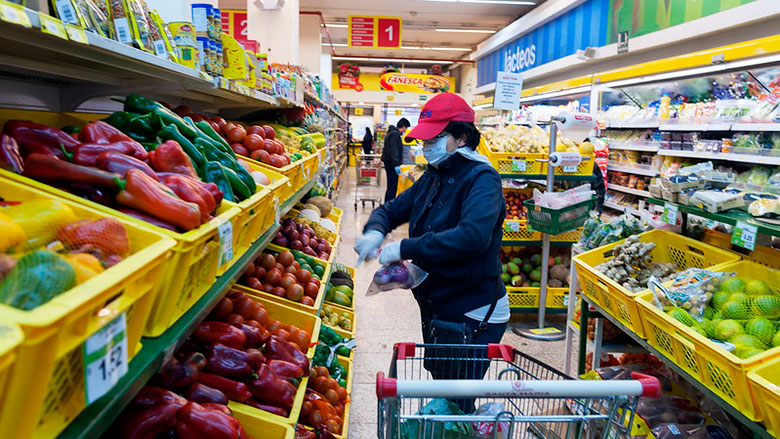Challenge
In early 2020, the COVID-19 pandemic erupted, affecting the entire world. In Ecuador, the impacts of the COVID-19 crisis were expected to be particularly severe on poor and vulnerable households. This effect did indeed materialize, with an estimated 1.5 million residents pushed into poverty and worsening conditions for those who were already poor. The vulnerable included a large Venezuelan migrant population that had arrived in Ecuador in recent years.
Ecuador’s rigid labor market regulations had already contributed to an increase in the share of informal workers since 2014. Such rigidities included high firing costs, limited work modalities, and rigid working hours, which left little room for firms to adjust to economic shocks like the COVID-19 crisis. When formal workers lost their jobs, they faced long wait times and cumbersome processes to access unemployment benefits, which were available only for a relatively short period of time. Finally, the country’s weakened fiscal position and limited access to external financing constrained the government’s ability to respond to the crisis.
Approach
The World Bank had been working with Ecuador in a development policy financing (DPF) series to support the government’s structural reform program for strengthening its fiscal position and promoting sustainable growth. The first development policy loan (DPL) in this series was approved in June 2019. The COVID-19 crisis erupted during the preparation of the second operation. The DPF series was quickly restructured to support Ecuador's response to the emergency, while preserving the bulk of the medium-term reform agenda, such as reductions in energy subsidies, which will be even more critical to Ecuador's economy during the post-crisis recovery. Adding flexibility and expanding social protection was critical to help ensure the survival of productive firms and formal jobs. In this context, the second DPL supported these efforts: (i) creation of an emergency cash transfer scheme for vulnerable households not covered by existing social assistance programs; (ii) regulation of telework and flexibility in work arrangements to allow for emergency adjustments or suspension of work shifts while maintaining the employment link; and (iii) extension of amnesty to and facilitated regularization of irregular migrants.
Results
To meet the challenges of the COVID-19 pandemic, Ecuador worked with the World Bank to create fiscal space, increase labor flexibility, and protect migrants. Efforts made throughout 2020 included:
- Potecting the vulnerable and poor by expanding emergency transfers, including to those covered by social assistance programs. The first phase of the emergency transfer program delivered two monthly installments of $60 to 400,000 vulnerable households not already benefiting from existing social assistance programs. This was expanded to an additional 422,000 beneficiaries with a $120 one-time payment between May and June 2020.
- Increasing flexibility in work arrangements by reducing the average time needed to access unemployment benefits from 60 days in 2019 to 6 days during the crisis.
- Creating fiscal space for crisis response through increased withholding of income taxes for large corporations in resilient segments while deferring payments from firms in the most affected segments.
- Reducing the costs associated with purchased medical equipment by eliminating import tariffs and restrictions applied to these goods during the COVID-19 emergency.
- Creating a Migratory Registry, based on the information from the Migratory Census, to ensure public services are effectively provided to Venezuelan migrants and refugees. The Migration Registry now covers 165,761 Venezuelan migrants.
- Increasing access to financing by promoting digital banking, including by remote uptake of basic accounts via mobile phones. Basic accounts are a critical entry point into the formal financial sector and were designed to meet the basic payment and savings needs of underserved consumers.
